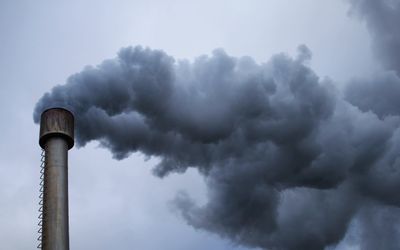MANY companies that have accepted the need to reduce their carbon emissions continue to take decisions and make investments that contradict this, according to Gary Kendall, a sustainability consultant to Nedbank.
Mr Kendall was addressing a breakfast discussion on Thursday on the world’s energy transition hosted by MAC Consulting as global leaders prepare for the Conference of Parties 21 climate change summit in Paris beginning in two weeks.
Although SA’s current heat waves and drought are caused by a short-term weather phenomenon rather than fundamental climate change, the crisis is helping to focus public attention on what could happen if average global temperatures rise 4°C by the end of this century. Climate change forecasters predict a 4°C rise if nothing is done to curb the use of fossil fuels.
SA is heavily reliant on coal mining for jobs and electricity generation.
This week, Friends of the Earth International and the Heinrich Böll Foundation released a Coal Atlas, which showed that coal accounted for 44% of all energy-related carbon dioxide emissions.
According to Arne Jungjohann, a contributor to the atlas, the biggest recipients of coal finance by export credit agencies between 2007 and 2014 were Vietnam, at more than $4.5bn, followed by SA, at just shy of $4.5bn.
Since 2013, the World Bank, European Bank for Reconstruction and Development and the European Investment Bank have decided to fund coal projects only in exceptional circumstances.
Commercial banks are an even bigger source of global coal funding, according to Mr Jungjohann. Between 2005 and 2014 financing for coal projects totalled $500bn.
Mr Kendall said if the International Panel on Climate Change’s assumptions were accepted, the world would have to decarbonise over the next 40-50 years to maintain a temperature rise of less than 2°C. Global and national carbon budgets required a strategic response at company level.
Mr Kendall said different industries should have different carbon budgets.
For a financial services company such as Nedbank, the scope to reduce its own emissions was limited, but the carbon budget should inform its lending decisions.
Barry MacColl, Eskom GM of research, testing and development, said the power utility could find new opportunities in a changing energy industry that did not require building new large-scale coal-fired or nuclear power plants.
It could become a network business, interfacing between distributed sources of generation and customers, in the same way as Uber operates.
"An old power company can transform into a new power company," Mr MacColl said. "Technically, it is not difficult. It is about policies and decisions."




















Change: 0.95%
Change: 1.07%
Change: 0.81%
Change: 0.88%
Change: 1.95%
Data supplied by Profile Data
Change: 0.00%
Change: 0.00%
Change: 0.95%
Change: 0.00%
Change: 0.00%
Data supplied by Profile Data
Change: 0.02%
Change: 0.00%
Change: -0.27%
Change: -0.08%
Change: 0.00%
Data supplied by Profile Data
Change: 0.00%
Change: 0.00%
Change: 0.00%
Change: 0.00%
Change: 0.00%
Data supplied by Profile Data